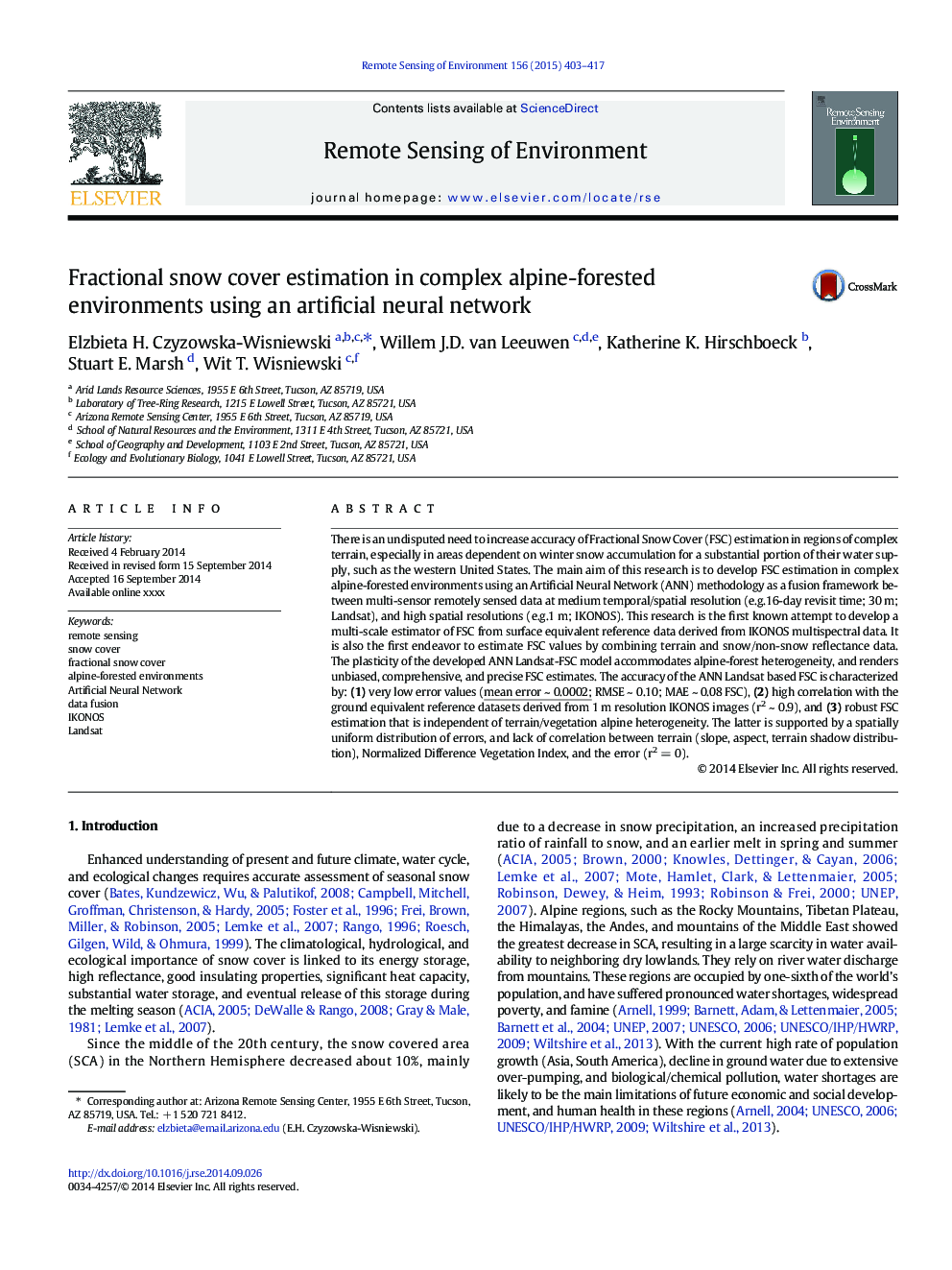| Article ID | Journal | Published Year | Pages | File Type |
|---|---|---|---|---|
| 6346550 | Remote Sensing of Environment | 2015 | 15 Pages |
Abstract
There is an undisputed need to increase accuracy of Fractional Snow Cover (FSC) estimation in regions of complex terrain, especially in areas dependent on winter snow accumulation for a substantial portion of their water supply, such as the western United States. The main aim of this research is to develop FSC estimation in complex alpine-forested environments using an Artificial Neural Network (ANN) methodology as a fusion framework between multi-sensor remotely sensed data at medium temporal/spatial resolution (e.g.16-day revisit time; 30 m; Landsat), and high spatial resolutions (e.g.1 m; IKONOS). This research is the first known attempt to develop a multi-scale estimator of FSC from surface equivalent reference data derived from IKONOS multispectral data. It is also the first endeavor to estimate FSC values by combining terrain and snow/non-snow reflectance data. The plasticity of the developed ANN Landsat-FSC model accommodates alpine-forest heterogeneity, and renders unbiased, comprehensive, and precise FSC estimates. The accuracy of the ANN Landsat based FSC is characterized by: (1) very low error values (mean error ~ 0.0002; RMSE ~ 0.10; MAE ~ 0.08 FSC), (2) high correlation with the ground equivalent reference datasets derived from 1 m resolution IKONOS images (r2 ~ 0.9), and (3) robust FSC estimation that is independent of terrain/vegetation alpine heterogeneity. The latter is supported by a spatially uniform distribution of errors, and lack of correlation between terrain (slope, aspect, terrain shadow distribution), Normalized Difference Vegetation Index, and the error (r2 = 0).
Keywords
Related Topics
Physical Sciences and Engineering
Earth and Planetary Sciences
Computers in Earth Sciences
Authors
Elzbieta H. Czyzowska-Wisniewski, Willem J.D. van Leeuwen, Katherine K. Hirschboeck, Stuart E. Marsh, Wit T. Wisniewski,
